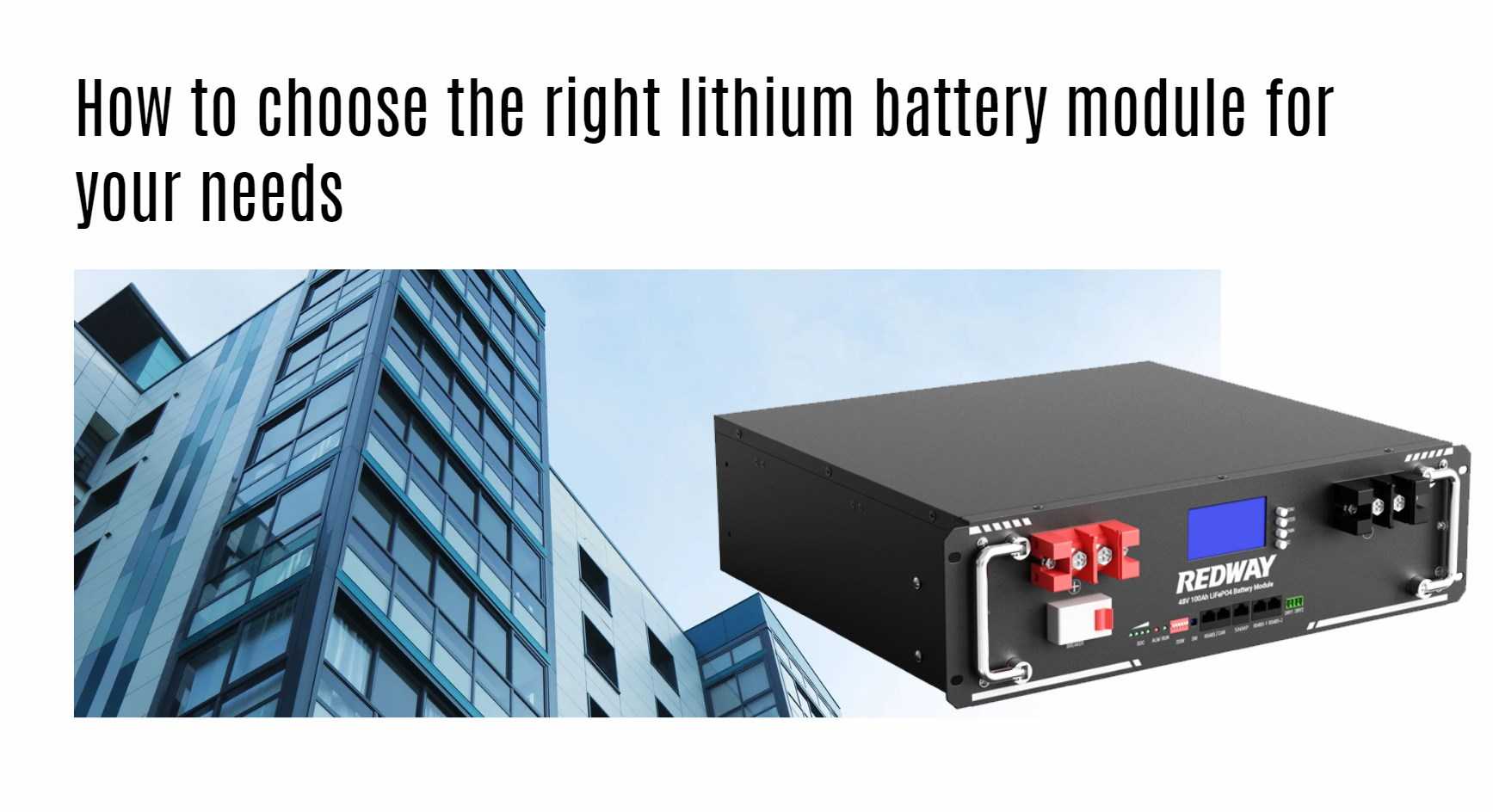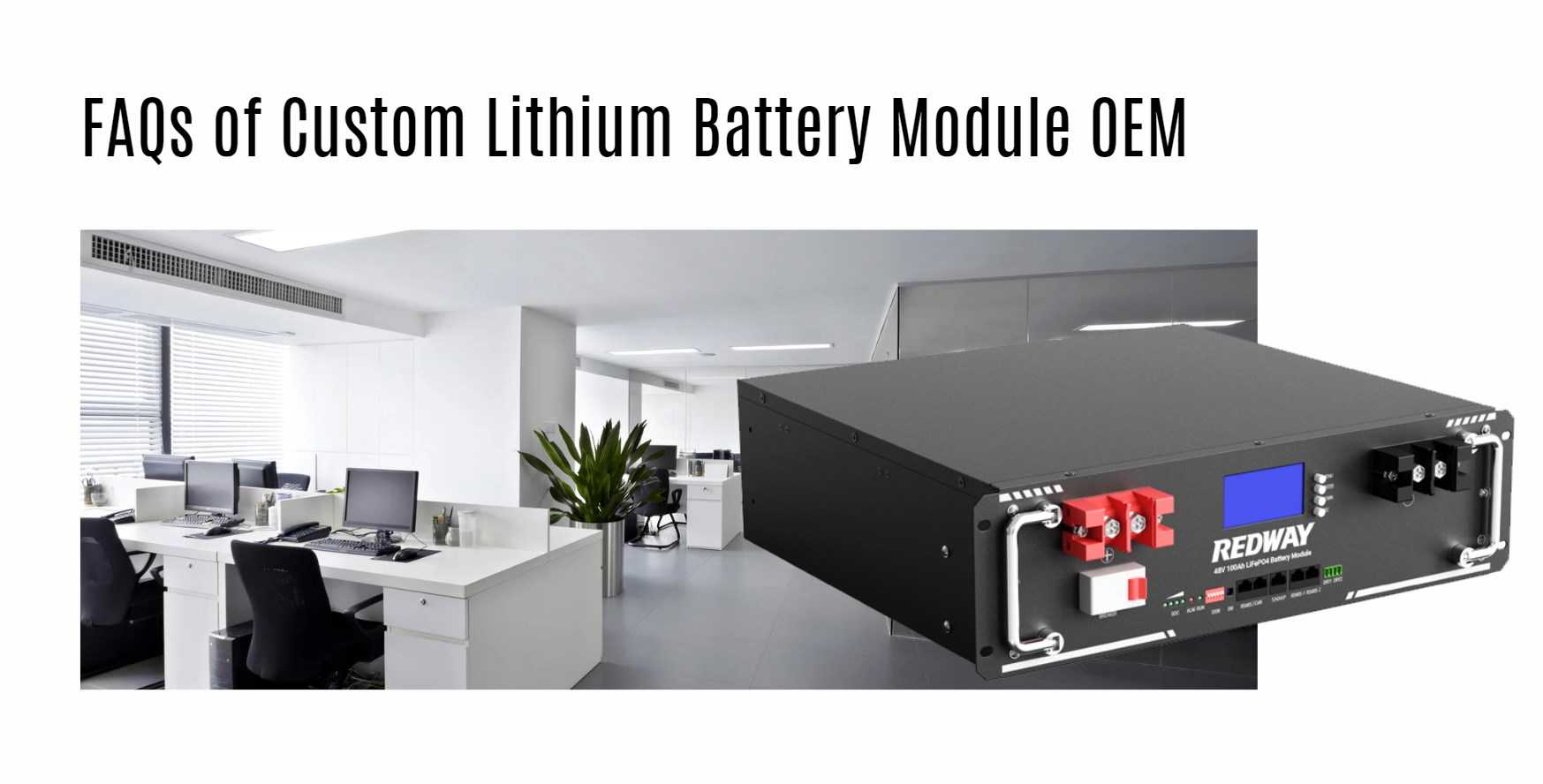FAQs of Custom Lithium Battery Module OEM: Learn about the advantages, selection tips, care instructions, HS codes, and the necessity of Battery Management Systems (BMS) for lithium battery modules. Ensure optimal performance and longevity with expert insights on choosing, caring for, and importing lithium battery modules.
What is a lithium battery module?
Introducing the lithium battery module: a compact, self-contained unit with connected lithium-ion cells offering higher output voltage and capacity. Here’s why they stand out:
- High Energy Density: Lithium battery modules store more energy per volume or weight than traditional batteries, making them perfect for portable devices like laptops, smartphones, electric vehicles, and spacecraft.
- Fast Charging and Long Lifespan: Enjoy fast charging times, extended lifespan compared to conventional batteries, and low self-discharge rates, ensuring they retain charge for more extended periods.
- Customization for Specific Needs: OEM manufacturers can tailor lithium battery modules to specific requirements, choosing the number of cells for desired voltage or capacity in various shapes and sizes.
In summary, lithium battery modules provide a reliable power source with advantages surpassing traditional batteries.
What are the benefits of using a lithium battery module?
Discover the advantages of lithium battery modules, a popular choice for various applications:
- High Energy Density: Lithium battery modules store more power in a smaller space compared to other batteries, providing efficient energy storage.
- Longer Lifespan and Durability: With an extended cycle life, lithium batteries outlast traditional lead-acid batteries, remaining resilient against vibrations and shock.
- Fast Charging and High Discharge Rates: Ideal for electric vehicles and renewable energy systems, lithium battery modules offer quick charging and discharging capabilities.
- Low Maintenance and Eco-Friendly: Unlike many rechargeable batteries, lithium modules require no maintenance and produce no harmful emissions during use or disposal, making them an environmentally friendly option.
In summary, the high energy density, durability, fast charging, and eco-friendliness make lithium battery modules an excellent choice for modern applications.
How to choose the right lithium battery module for your needs
Choosing the right lithium battery module involves considering key factors:
- Application-Specific Needs: Identify the intended application to determine voltage, capacity, and discharge rate requirements, narrowing down options accordingly.
- Size and Weight Constraints: Factor in space limitations; opt for a smaller, lighter battery for constrained setups, or choose a larger module for projects prioritizing high energy density.
- Quality and Reliability: Select modules from reputable manufacturers with high-quality materials and stringent testing procedures to ensure durability and performance.
- Customization Options: Explore offerings from OEMs for tailored solutions, allowing you to meet specific needs or applications precisely.
By weighing these considerations, you can confidently choose the ideal lithium battery module for your unique requirements.

What does OEM mean on a battery?
Understanding OEM (Original Equipment Manufacturer) in the context of batteries is crucial:
- Definition of OEM: OEM stands for Original Equipment Manufacturer. In battery terms, it signifies a module made by the same company that manufactures the device it powers, ensuring compatibility.
- Benefits of OEM Batteries: OEM batteries offer compatibility and reliability, designed specifically for your device. This ensures seamless integration with all components, optimizing performance and lifespan.
- Considerations for Non-OEM Batteries: While non-OEM batteries may be more budget-friendly, they can void warranties or harm devices if not carefully selected. Prioritize compatibility over cost when choosing between OEM and non-OEM battery modules.
By understanding these points, you can make an informed decision about the right battery module for your device.
What is the HS code for Li ion battery module?
When dealing with the import or export of lithium-ion battery modules, understanding the HS code is essential:
- What is HS Code: HS stands for Harmonized System, a global classification system for goods used by customs authorities. Knowing the HS code is crucial for smooth customs procedures.
- HS Code for Li-ion Battery Modules: Generally falling under Heading 8507 for “Electric accumulators including separators,” the specific HS code varies based on factors like type, size, capacity, rechargeability, voltage rating, and power output.
- Importance of Correct HS Code: Using the correct HS code is vital to avoid customs delays and potential penalties. Consult with your local customs office or freight forwarder to ensure accurate classification before importing or exporting lithium-ion battery modules.
Understanding and correctly applying the HS code is crucial for a seamless and compliant international trade process.
How to care for your lithium battery module
Ensuring the longevity and optimal performance of your lithium battery module involves simple care practices:
- Storage Conditions: Store the battery module in a cool, dry place away from direct sunlight or heat sources to prevent damage from extreme temperatures.
- Charging Habits: Avoid overcharging or discharging the battery excessively. Use a charger designed for your battery model and unplug it when fully charged to prevent irreversible cell damage.
- Maintenance: Keep the module clean by regularly wiping it with a soft cloth. Avoid harsh chemicals or abrasive materials that can scratch the surface or compromise internal components.
- Handle with Care: Exercise caution when installing or transporting lithium battery modules to prevent dropping or mishandling, which may cause permanent damage to delicate parts.
Following these straightforward tips ensures the extended life and continued excellent performance of your lithium battery module.
Do you really need a BMS for lithium batteries?
Unlock the full potential of lithium battery modules with these key insights:
- Choosing the Right Module: Whether for electric vehicles or high-energy applications, selecting the appropriate lithium battery module is crucial for long-term benefits.
- HS Code Awareness: Understand the HS code for Li-ion battery modules to ensure compliance with international regulations during import/export, a critical factor for a seamless global trade process.
- Proper Care: Extend the lifespan of your lithium batteries by avoiding extreme temperatures, using correct charging methods, and handling them with care during installation and transport.
- Importance of BMS: Consider installing a Battery Management System (BMS) to protect against overcharging and overheating. This safeguard not only preserves battery life but also prevents damage to devices.
By incorporating these insights, you can harness the efficiency and reliability of lithium battery modules across various applications.




